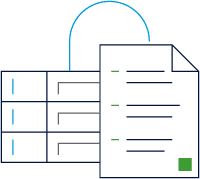The International Accounting Standards Board (“IASB”) has issued Contracts Referencing Nature-dependent Electricity – Amendments to IFRS 9 Financial Instruments and IFRS 7 Financial Instruments: Disclosures.
The amendments have been made in response to the challenges companies in the renewable energy sector had previously experienced in applying the requirements of these Standards.
The targeted amendments to IFRS 9 and IFRS 7, made after considering the commentaries received from the Exposure Draft published in May 2024. The IASB decided to add a narrow-scope standard setting project and developed amendments to the Standards for contracts to buy or sell renewable nature-dependent electricity that have specified characteristics.
Contracts for nature-dependent electricity are often structured as Power Purchase Agreements (“PPAs”), whether they are in the physical form or virtual forms.
The amendments include the following matters:
- Clarifying the application of the “own-use exemption” requirements
- Permitting hedge accounting if these contracts are used as hedging instruments; and
- Including new financial disclosure requirements in IFRS 7 Financial Instruments: Disclosures and IFRS 19 Subsidiaries without Public Accountability: Disclosures, enabling investors to understand the effect of these PPA contracts on a company’s financial performance and cash flows.
Clarification of the own-use exemption requirements under IFRS 9
IFRS 9 contains the “own-use exemption” which exempts certain “own-use” contracts from the requirements of the standard. The exemption applies to contracts that are entered for the purpose of the receipt or delivery of a non-financial item in accordance with the entity’s own expected purchase, sale, or usage requirement. If the requirements of the own-use exemption are not met, these contracts (i.e., PPAs) would be recognised as derivatives and therefore measure at Fair Value through Profit or Loss (“FVTPL”) under IFRS 9.
Companies often faces challenges in assessing whether the receipts of electricity from these nature-dependent electricity contracts are consistent with companies’ expected purchase, sale, or usage. This is due to the specific characteristics of nature-dependent electricity contracts which are inherently uncertain due to their nature dependency.
For example, a contract to purchase the entire output, or a specific portion of the output, of a wind or solar generation facility, might be made in the expectation that the energy produced is for the entity’s own use. However, variations in wind or climate may mean that there are periods where the entity cannot use or store all of the power produced, and therefore may have to sell some back to the grid. It was previously unclear whether the inability to use all the power generated violated the requirements of the own-use exemption.
If the own-use exemption was not available, then the contract would be treated as a derivative and marked to market at each reporting date, with any movement being recognised in profit or loss. This could be a difficult and costly exercise, with the potential to create significant volatility in the income statement.
The amendments include the factors that companies should consider when applying paragraph 2.4 of IFRS 9 to contracts to buy and take delivery of renewable electricity for which the source of production of the electricity is nature dependent. These factors include:
- The purpose, design and structure of the contract including the volumes of electricity expected to be produced by a referenced production facility, compared to companies’ expected usage requirements.
- Reasonable and supportable information about changes in expected volume of electricity to be used over the duration of the contract.
- Assessing whether companies remain as a “net-purchaser” over a reasonable amount of time. It is expected that companies would purchase an equivalent volume of electricity that was sold shortly after delivery in the market within a reasonable time after the sale. Generally, companies would be considered as net-purchasers when their renewable electricity purchases sufficiently offset any sales of unused electricity within the same market.
Overall, the amendments provide clarification on the application of the own-use requirements, allowing companies to apply the own-use exemption if they have been, and expect to be, net-purchasers of electricity throughout the contract period.
Amendments to the hedge accounting requirements
The amendments on the hedge accounting requirements in IFRS 9 now permits companies to designate a variable nominal volume of forecast electricity transactions as the hedged item. The variable hedged volume is determined based on the variable volume expected to be delivered by the generation facility specified in the hedging instrument.
Prior to the release of the amendments, it was often challenging to apply hedge accounting to renewable electricity contracts under the existing qualifying criteria for hedge accounting under IFRS 9. The existing requirement of the Standard requires the hedged items to be designated as a specified nominal amount or volume. As a result, any changes to the nominal amount or volume of the hedged item could lead to the discontinuation of the hedging relationship.
On the other hand, IFRS 9 requires that if a hedged item is a forecast transaction, the transaction must be highly probable for it to be eligible for designation as the hedged item. The amendments further provides an exception for designated forecast nature-dependent electricity contracts, allowing them to qualify as hedged item with the presumption the transaction is highly probable.
The amendments to the hedge accounting requirements apply prospectively to new hedging relationships designated on or after the date of when the amendment is first applied.
New financial disclosure requirements for nature-dependent electricity contracts
Amendments made to IFRS 7 Financial Instruments: Disclosures and IFRS 19 Subsidiaries without Public Accountability: Disclosures introducing specified financial disclosure requirements for nature-dependent electricity contracts.
The amendments include additional disclosure requirements to enable users of financial statements to understand how these contracts for renewable electricity affect the amount, timing and uncertainty of the companies’ future cash flows.
Specific disclosure requirements apply to companies that adopt own-use exemption for certain PPAs under the amendments. Key specific disclosure requirements are as follows:
- The contractual terms and conditions that expose companies to variability in the volume of electricity and the risk of being obligated to buy electricity during the electricity delivery interval.
- The estimated future cash flows resulting from unrecognised contractual commitments to purchase electricity.
- Information that are used for net-purchaser assessment, including disclosures on the costs of electricity purchases and proceeds from the sales of unused electricity; and the cost of electricity purchase to offset the sales of unused electricity.
In addition, companies are required to disaggregate the information about the terms and conditions of hedging instrument by risk category, ensuring that details specified to contracts for nature dependent electricity are presented separately.
RSM’s view
Commenting on the amendments, Ralph Martin, National Technical Partner of RSM Australia said:
“The amendments issued by IASB are a welcome step in addressing the accounting and financial reporting challenges associated with the nature-dependent electricity contracts. They reflect the unique features of such contracts, which inescapably must incorporate an element of variability in the amount of power purchased.
The amendments are necessary in responding to the market needs and provide explicit guidance to companies accounting for these contracts. Given the push towards Net Zero, both in Australia and many other jurisdictions, we expect the volume of such contracts to continue to increase.
However, while the amendments are welcome, affected entities should not underestimate the cost and complexity of assessing whether the “net-purchaser” requirements are met, and therefore whether the own-use exemption is available.”
Effective date
The amendments are effective for annual reporting periods beginning on or after 1 January 2026. Earlier application of the amendment is permitted.
FOR MORE INFORMATION
If you would like to learn more about the topics discussed in this article, please contact your local RSM office.






